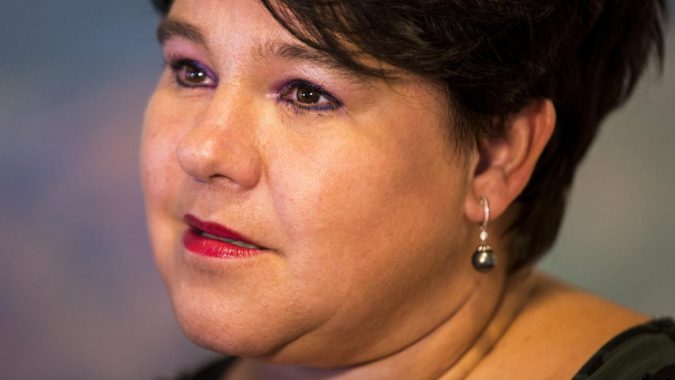25 Nov 2016

Speech | 23-11-2016
Ladies and gentlemen,
Selemat sore
Good afternoon!
It’s a pleasure to speak to you today at this important seminar.
This major trade mission, led by our Prime Minister, Mark Rutte, underscores the close friendship between the Netherlands and Indonesia. Just like President Widodo’s visit to the Netherlands earlier this year also confirmed the close ties between our two countries.
I’ve only been in Indonesia for a couple of days and I must tell you how much I’m enjoying your generous hospitality. I’m also impressed by how much the Indonesian economy has developed in the past few decades. I’ve visited your beautiful country several times now. Three years ago – as agriculture minister – I also came with a large trade mission. My talks then were about cooperation and economic opportunities in agriculture and horticulture, and about sustainable fish production and the import of Dutch onions. The programme for my present visit is a bit different!
Now I’m here as the environment minister to talk about climate change and waste management. And about how our two countries can support each other in moving towards a sustainable, safe world for all. A world in which we can find better, smarter solutions to the challenges facing us by working together. Creating economic opportunities in the process.
Earlier today, I had very productive talks with your Minister of Environment and Forestry, Dr Siti Nurbaya Bakar. She told me that the Paris climate change conference has led to a surge of positive energy in Indonesia. And a sense of urgency to turn words into deeds.
In our talks, Dr Bakar and I confirmed that we share many of the same interests when it comes to combating climate change. Our countries’ commitment to the Paris Agreement provides a framework for intensified bilateral cooperation on climate change. I’m looking forward to that.
Indonesia and the Netherlands share a common interest in both adaptation and mitigation.
Both our countries are prone to flooding, both from the sea and from our rivers. Floods often cause terrible human suffering. And devastating economic damage. They also slow down economic development.
But it’s not only an excess of water that causes problems. So do shortages – drought. Even in the wet and rainy Netherlands, a long dry spell can cause considerable harm. Chiefly to nature and agriculture.
We can deal with all these problems by working together – on water management, flood protection and farming technology. We’re already doing this in a number of areas. For example, in setting up early warning systems for floods and droughts. These systems may not prevent damage entirely, but they can keep it to a minimum.
Ladies and gentlemen,
Even if we manage to minimise carbon emissions, we will have to adapt to a changing world. But we shouldn’t only respond to change.
We should keep a step ahead – prevent disasters from happening in the first place. That will save human lives. And it’s also a logical economic investment. Roughly speaking, every euro spent on prevention yields 7 euros’ worth of development.
That’s also why, at COP22 in Marrakech, the Netherlands took up the challenge to accelerate climate adaptation actions. Together with UN Environment, we’re exploring the launch of a Global Centre of Excellence on Climate Adaptation in 2017, with a broad network of international partners.
The Centre will pool knowledge to help countries, communities and companies develop and implement replicable approaches to adaptation, and to find the right resources. It will also enable collaboration on new methods of monitoring and managing our efforts, to see if we’re moving in the right direction.
Ladies and gentlemen,
I’ve just mentioned Marrakech and COP22. I’d like to share some more of my thoughts on this summit.
In Paris we agreed on a collective ambition to address the climate challenge together. With that aim in mind, we each decided our contribution at national level. In Marrakech we started to define the Paris rulebook – how to track progress, show how we’ve moved forward, and so on.
Now we need climate action on the ground. Climate action will improve people’s lives, make them less vulnerable to climate change and open up prospects for green growth. We need a resilient water and food supply, and resilient investments in roads, bridges and infrastructure.
Let’s manage opportunities instead of constantly managing crises. Let’s aim for a just transition which benefits us all. Responsible global leadership and solidarity means that we all take action. A smart entrepreneur who wants to be successful identifies the opportunities, the innovation, the cost savings. Why invest in fossil fuels if the latest tenders for renewable energy provide far cheaper electricity? At a price that makes access to energy far more affordable for the poorest. And will make our energy supply far more secure.
It’s encouraging to see action agendas being developed across all topics and sectors. And to see so many Climate Champions. When you lead the way, you enjoy all the benefits. So I recently organised a National Climate Summit, with the title ‘Bring Paris Home’. It was attended by companies, cities and citizens alike. They all want to bring about genuine change, halt global warming, and do their part in combating climate change.
As I’ve said, there are plenty of opportunities for cooperation on adaptation and mitigation. Joint action will benefit both Indonesia and the Netherlands. Transparency is at the core of all climate efforts. It helps create investment opportunities, underpins climate action and is indispensable for any future move towards carbon pricing.
This morning I signed a Memorandum of Understanding to pave the way for action. I’m delighted with the project on Monitoring Reporting and Verification of Greenhouse Gas Emissions which marks the start of work under this MOU.
The commitment we have entered into gives our two countries a framework for future cooperation on climate change. I’m looking forward to it.
It shows that we’re serious about implementing the Paris Agreement, and about doing all we can to keep global temperature rise below 2 degrees.
To conclude, we have to give Paris a more than fitting follow-up. Marrakech showed us that we’re still in the flow that started in Paris. The Marrakech Action Proclamation and all the announcements that were made by Parties and non-Party stakeholders alike, show continued unity and resolve in putting Paris into Practice.
We can also take important steps on a bilateral basis. And that’s what our two countries will be doing during this week’s visit. With this mission we’ll prove that we can make a difference. We can put Paris into practice. For a safe and healthy future for everyone!
Terima kasih, thank you!



